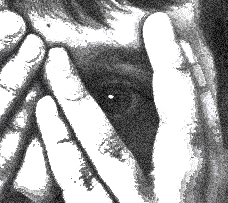Phobias
It is generally considered that phobias arise from a combination of external experiences and personal predispositions. Certain phobias such as ophidiophobia (fear of snakes) and arachnaphobia (fear of spiders) however, probably arise more easily due to an evolutionary conditioning of humans to fear those creatures that can cause them harm.
Martin Seligman, in a now famous experiment, used classical conditioning to establish phobias of both flowers and snakes. This experiment’s results revealed that it took far fewer shocks to create an adverse response to a picture of a snake than to a picture of a flower, leading to the conclusion that we may have a genetic predisposition to associate certain objects with fear.
Many specific phobias are caused by a specific traumatic experience at an early age. Social phobias and agoraphobia (a fear of crowded or wide open spaces) have more complex causes that are not entirely known at this time. It is believed that heredity, genetics, and brain chemistry combine with life-experiences to play a major role in the development of anxiety disorders and phobias.
How Phobias develop.
The parts of the brain responsible for phobias are the Amygdala and the Hippocampus. The Amygdala looks out for danger and elicits an “emotional” reaction, it's responsible for initiating your fight or flight response. This response alters body chemistry inducing the feelings associated with panic.
The next stage of a phobia is to lay the response down in a template in the Hippocampus, the Amygdala responds to a stimulant and the hippocampus tells it how it dealt with it the last time - in the case of a phobia this is an overwhelming fear which prevents us dealing with the situation in a balanced, measured manner.
Phobias can be a source of great discomfort and can cause us harm. My dentist phobia led me to suffer weeks of terrible pain and consume dangerous amounts of pain killers in order to put off the inevitable experience of dental treatment. (Which was far less painful than the terrible toothache I endured all that time.)
The good news is that Phobias can be managed and once under control you can manage them until they have gone, and they do go, especially if you have a real vision of how you'd like your life to be if the problem wasn't there.
Starting with relaxation and using a fast phobia technique, and reframing the problem, Specific phobias usually take 4 or 5 sessions to get under control. If your anxiety is generally very high, it might take longer.
In non-specific phobias, such as fear of wide spaces, the dark and emetaphobia etc, there are no specific triggers, so it does take longer and we focus on lowering anxiety generally.
To request a free initial consultation press here now.
Home




